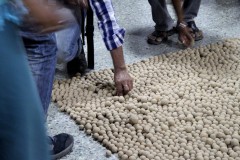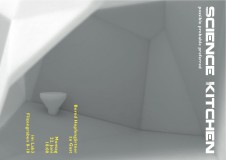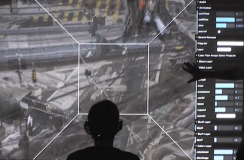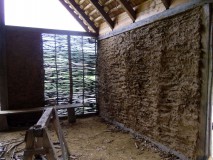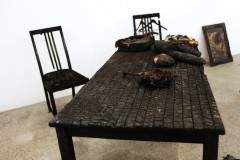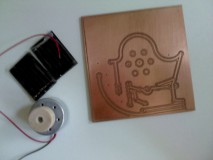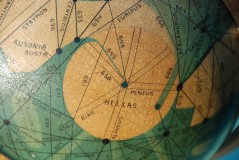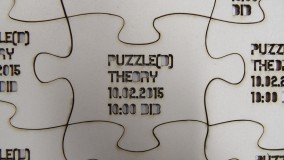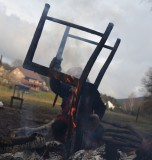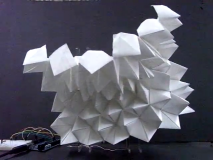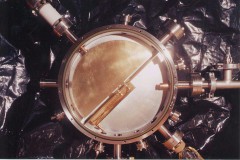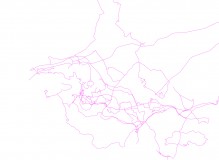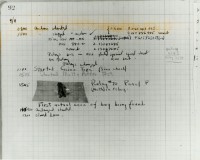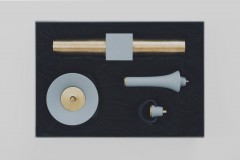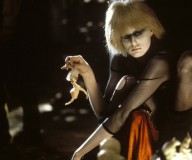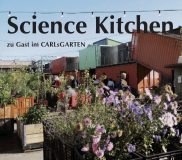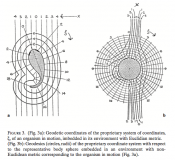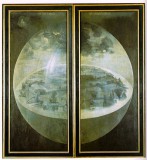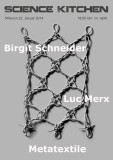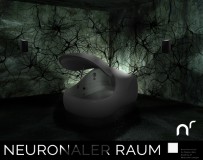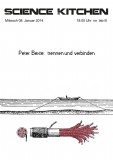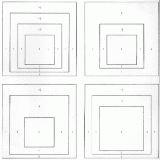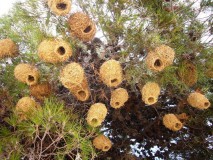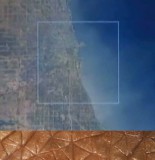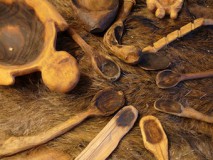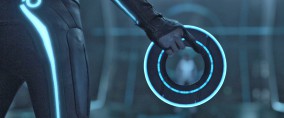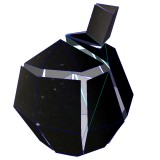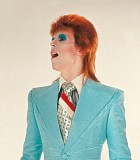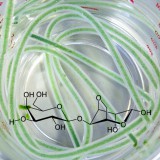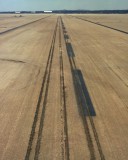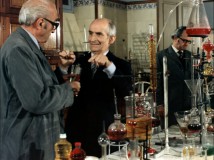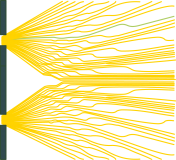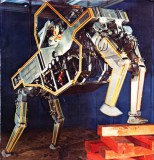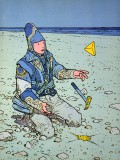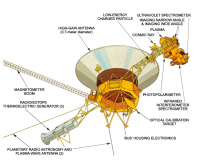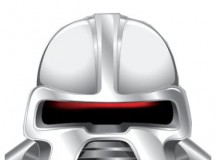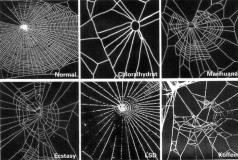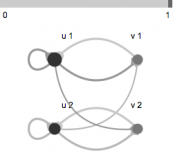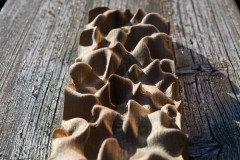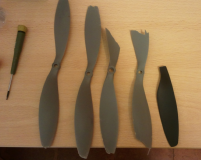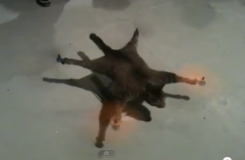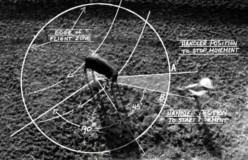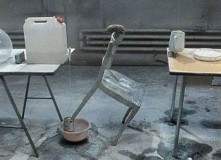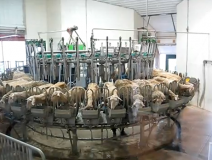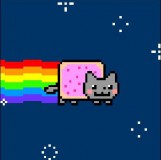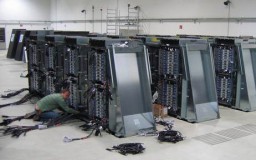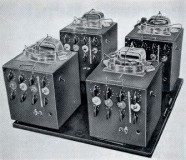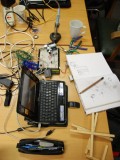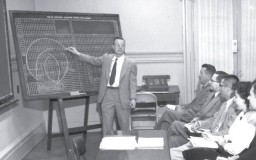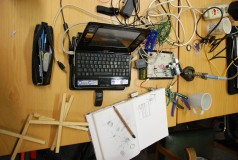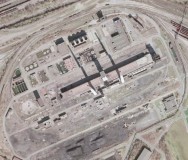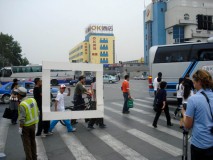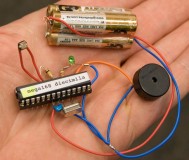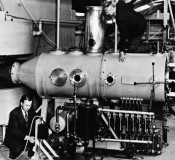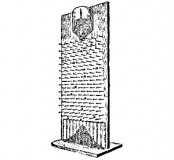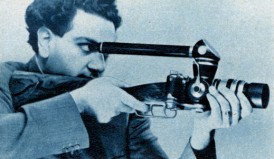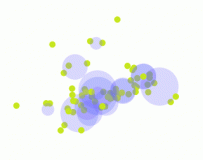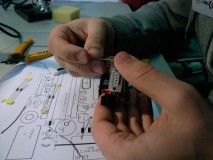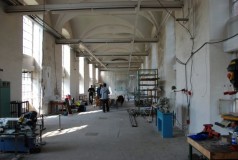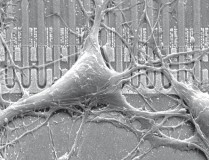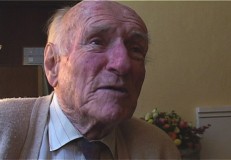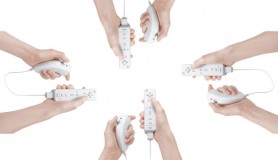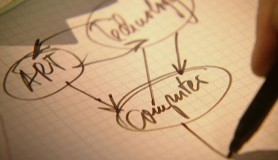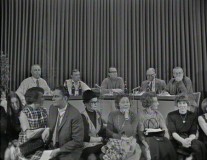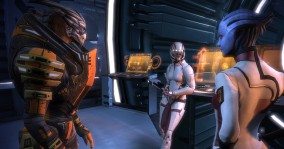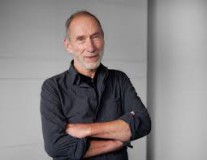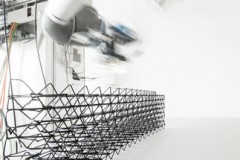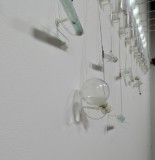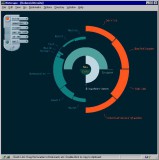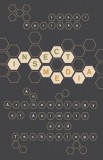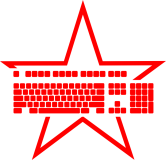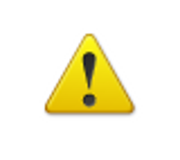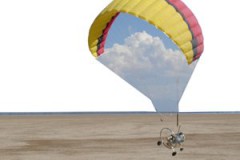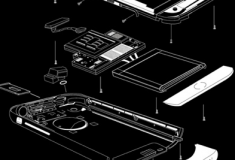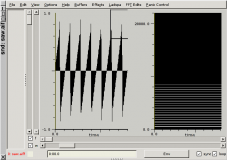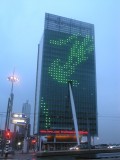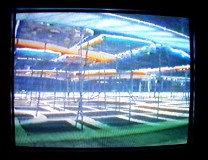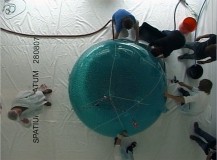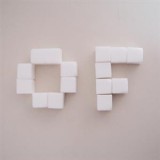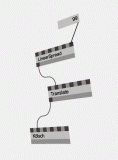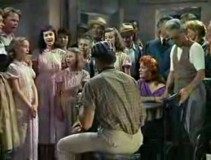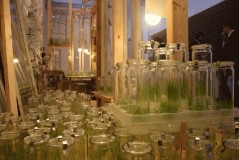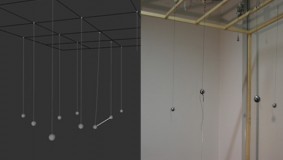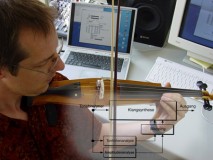Science Kitchen 19
Sunoj D. (Bangalore/ India) about The Forager, a platform for multi-disciplinary food related inquiries.
Science Kitchen 18
This evening we are going to discuss further our ideas of possible probable preferred together with Bernd Hopfengärtner, who will take a look at scenario techniques from the perspective of his own work.
Ursula Damm: Acting in an Environment
Her talk at the seminar Technisches Sehen about Acting in an Environment will deal with the idea of art works as small models of the world.
Science Kitchen 17
This evening we are going to discuss topics of a more classical approach in construction and together construe possible implications.
Science Kitchen 16
Amaru Cholango as our guest at Lab3 with a lecture about his idea of “Future without future” as part of our seminar topic possible probable preferred
Gebaute Phantasien – Mögliche Welten
Whether as a scenic design, or as a hypothetical sequence of events, a scenario gives us a space of possibilities.
Science Kitchen IV
The focus of our considerations are future-oriented topics which are set in the interplay between possible, probable, preferred.
Puzzle(d) Theory
What is theory?
What can you do with theory?
What!?!? There’s theory at the KHM?
18.12. come together, lecture and tournament
Like every year our last seminar date will be a time for a come together:
16:00 Guest Lecture by Amaru Cholango about the form of thought of Andean cosmovision. Afterwards christmas party and kicker tournament.
Code and Material (Zyklotron)
Material is the foundation of every artistic work, as a carrier, as media, and to stress or emphasize aesthetics and functionality.
11.12. next topic begins
FALTEN (folding) 11:00 – 13:00
Science Kitchen 15
Boris Sieverts zu Gast in der Science Kitchen
Mulilaterale Verhandlungen – über die Verhandelbarkeit von geplanten und ungeplanten Wirklichkeiten
Science Kitchen 14
A lateral drift together with our guest Linda Hilfling who will talk of Bugs and Misses.
Ludwig Zeller as guest
Ludwig Zeller is presenting his topic of Technologies of the Speculative at our seminar “Gebaute Phantasien – Erfundene Realitäten”.
Science Kitchen 13
The vegetable garden in the city is a utopia. Even your own home-grown and harvested cucumber does not meet the EU standard.
Gebaute Phantasien — erfundene Realitäten
In this seminar we will study the tension between built phantasies and imagined facts using historical and contemporary examples.
Das Seminar behandelt das Spannungsfeld zwischen gebauten Phantasien und imaginierten Fakten anhand vielfältiger historischer und aktueller Beispiele.
Nirgendwo-Land
We will discuss the states of utopia, their origins and their possibilities, also for our own artistic strategies. Furthermore we will focus on the idea of cyborgs and how they fit into our current state of thinking.
Science Kitchen III
It’s all about the lateral drift!
Moving laterally in the field of knowledge, science, gardens and fiction.
plasticity
In neuroscience plasticity signifies the brains capacity for livelong adaptation and ongoing structural change. The brain is thus an organ that finds itself in a process of permanent becoming.
Science Kitchen 11
Wednsday 08.01.2014, 18:00 Uhr
Our guest at Science Kitchen will be Peter Bexte
talking about:trennen und verbinden trennenundverbinden
As always open discussion and open end.
You’re welcome to join us in Lab3!
—
more about Science Kitchen in this semester.
more about Science Kitchen in the summer semester 2013.
Science Kitchen 8
Prof. Josef H. Reichholf talks about the evolutionary origin and meaning of cooking and food.
Why are we celebrating eating together?
Science Kitchen II
Dates
on wednesdays, (ir)regularly every two weeks 18:00 h
please watch out for postings at lab3 and on our website!
Code and Material WS 2013/14
Material is a base for every artistic work, as a carrier, a medium, or to stress aesthetics and functionality. Code in this respect can also be seen as material.
Science Kitchen 7
on the 10th of July
Karin Harrasser will be our guest with
Space Dandies and Technohermaphrodites. Extraterrestrial bodies in the last millennium
Science Kitchen 6
on the 19th of June
testing and tasting together in experiments of spherification, gelification and foams.
Science Kitchen 5
on the 12th of june
Julia Scher is our guest at science kitchen talking about her notion of alien landing pads and the future.
Science Kitchen 4
on the 22nd of May
Christian Faubel talks about
“l’aile ou la couisse?”
What do you want to eat?
Science Kitchen 3
on the 08th of May
with an introduction by Clemens Kujawski
and discussions surrounding
wave-particle duality and decoherence.
cybernetic serendipity
Four years after the first computer art exhibitions, Generative Computergrafik, in Stuttgart and Computer-Generated Picture in New York (1965) in 1968 the show Cybernetic Serendipity: The Computer and the Arts took place in London: “ 130 contributors, of whom 43 were composers, artists and poets, and 87 … engineers, doctors, computer scientists and philosophers.”
How to grow a plastic garden?
Wachstum wird in den verschiedensten gesellschaftlichen Kontexten beobachtet und beschreibt immer zeitgebundene Prozesse der Zunahme und Vermehrung. Die Bevölkerung wächst. Die Städte mutieren zu Megacities. Hedgefonds wuchern und das kann negatives Wirtschaftswachstum zur Folge haben. Tiere wachsen oft in Hochhäusern und die Pflanzen wachsen wild oder kultiviert – auf der Erde und sogar im All. Menschen können in Reagenzgläsern wachsen. Im Laufe des Lebens wächst oder schrumpft jeder. Das größte Lebewesen der Welt ist ein 2400 Jahre alter Pilz, der sich auf über 880 Hektar verbreitet hat. Und wie wächst das was man will? Welches Wachstum kann man beeinflussen? Was wächst wann? Wo wächst was?
Science Kitchen 2
on the 24th of April
about
Food Processing (David Hahlbrock),
Cargo Cult (Georg Trogemann) and
Science Fiction and/in History (Karin Lingnau).
Science Kitchen starts
The space probes Voyager 1 and 2 are the only manifestations of humanity so far that have travelled beyond the edges of the heliosphere. They were launched into space in 1977 and a decade later flew past the most distant planets in our solar system. …
Science Kitchen
Dates
on wednesdays, every two weeks 18:00 h
please watch out for postings at lab3 and on our website!
Netze
Georg Trogemann, Christian Faubel, Clemens Kujawski
Netze
Grundlagenseminar
Mittwochs, 16 – 18 Uhr
Filzengraben 8 – 10, Lab3
We will explore the term ‘net’ on the basis of current electronic communication technologies. How is the nature of electromagnetic waves used to imprint information and thereby realize the rapidly growing interconnetion of everyday things?
But the technologies of wireless communication are not at the center of the seminar. We are asking about the general principles of networking. In system theory for example networks are loosely coupled autonomous objects that only by mutual dependencies and permanent communication build an entity that we call network. We use and program (on arduino basis) a set of mechanical spiders to examine the basic terminology of networks.
(image: cobweb constructed by spiders under the influence of different drugs like LSD, ecstasy, caffeine, marihuana)
netze/networks neural oscillators
Material for the seminar networks/netze
Neural oscillators are interesting because they allow to create rhythmic behavior in a very elegant way. They can be realized with just two mathematical equations that describe the behavior of two mutually coupled systems in time.
Generative Skulpturen WS 2012/13
Compact seminar 26.-30.11.2012
Volker Helm, Lorenz Lachauer
Filzengraben 8-10, Lab3
The main aspect of this workshop will be the introduction to a 3D-modelling program, respectively the transfer of basic programming skills and implementation of generatively created drafts into a computer controlled manufacturing machine.
Schedule
1. Introduction to Rhino3D/Grasshopper3D/Rhinoscript
2. Development of concepts and its programming
3. Production with a manufacturing machine (laser cutter)
Prior regristration was necessary.
Code and Material WS 2012/13
Georg Trogemann, Martin Nawrath
Grundlagenseminar Material/Skulptur/Code
Wednesdays, weekly 14:00 – 16:00 pm
Filzengraben 8-10, Lab3
Code is a run-of-the-mill material. What only two decades ago belonged to the exclusive field of engineers and programmers today is omnipresent and part of the standard equipment in many different design and production processes. Thereby Code is a material like any other. Its basic possibilities, qualities and behavior have to be explored, routines have to be practiced and the stubbornness of the material has to be experienced. Autonomous behavior, networking, collaboration and interaction are features the new semiotic material supports.
Posthuman – Technics & Life
With Norbert Wieners Cybernetics or Control and Communication in the Animal and the Machine (1948) technology starts to play with life. Since these early days of Cybernetics methologies have made great progress. We no longer just try to explore the common basis of life and technology but technically alter the processes of life and vice versa biologically control technical processes.
The seminar presents a general view of the developments since Wiener and puts relevant researchers and current projects and literature up for discussion.
Action Spaces
The seminar examines spaces as spaces for action, that are created by the interconnection of external architecture, physiological or technological perceptive systems and individual action patterns. Part of the seminar will consist in a workshop in Montepulciano, Italy conducted together with Bauhaus-University Weimar.
Code and Material 2012
A seminar on code and material with a focus on the notion of information: Within the course, students develop material artefacts that transmit information. These artefacts are coupled into a chain (or channel), transmitting a given input via multiple stations and possibly yielding a Chinese whispers apparatus.
Hello Kitty! Technics and Animals
A trans-disciplinary colloquium on the complex interrelations of animals and technology.
Netze/Networks
Networks have become a condition of social life. Their dynamic evolution constantly sets new standards and conventions and will continue to cause significant changes. The seminar will examine the foundations of network technologies and demonstrate possibilities and strategies to act with and within networks.
New Visibilities?
Within the seminar we visit research institutions that develop the visibilities of the future: at the Jülich Supercomputing Centre (featuring the fastest computer in Europe), Fraunhofer IGD and Fraunhofer FIT we get in touch with the technologies, methods and aesthetics of state-of-the-art research and meet some of the scientists behind these projects.
Ex Machina
How to make a machine do more than it has been told? We examine theories, methods and concrete examples of how to use code and materials in order to get complex and even unexpected results “ex machina” from simple set-ups. Special attention will be paid to the interplay of programming and production and to the notion of feedback in technical systems.
Code and Material
Materials are a cetral topic of artistic practice, they are carrriers and media of ideas. In contrast, computers are thought to embody the immaterial. But with the advent of small pervasive computing devices that act in reactive environments, materiality unexpectedly gets a renaissance. The seminar teaches the basics of programming and working with microcontrollers and then focuses on laboratory work and the creation and discussion of small experiments that probe the relation of code and materiality.
Algorithms
Algorithms make computers capable of acting. With their implementation, specific forms of thinking migrate into machines and by that aesthetic decisions (among others) become machinized. In the seminar we present and analyse algorithms that are or were employed in the arts or that impact culture and society.
Living Matter
International Summer School 2010, KHM Cologne in cooperation with FU Freie Universität Berlin.
Code and Material II
The seminar continues the course › Code and Material but is open for new participants. It focuses on laboratory work and design and realization of projects and experiments dealing with immaterial code and the material world.
Heavy Matter (ISEA2010 RUHR)
Follow-up seminar of › Materie/Materialize! The work started in fall 2009 is continued and projects are realized. The main focus of these is the interplay of processes of materialization and dematerialization. The resulting works will be shown at ISEA2010 RUHR in summer 2010.
Point and Click
During a four day workshop, the adventure game genre is analysed and strategies of applying its rules to public space are developed. What is the relation of classic street games to the digital adventures of the computer game age? How did street games influence video games and how do pixel based games act back onto urban activities?
Code and Material
Material ist der Ausgangsstoff jeder künstlerischen Arbeit, es ist Träger und Medium der Idee. Computer- und Kommunikationsmedien gelten dagegen als Inbegriff des Immateriellen. In den letzten Jahren erleben wir das Verschwinden des Computers in den Dingen ihrer Umgebung. Handelnde Objekte in reaktiven Umgebungen sind aber nur durch Arbeit am Material realisierbar und verstehbar.
Materie/Materialize! (ISEA 2010)
Das Seminar führt die Themen des Seminars › Datencyclotron und „Materialize!“ des vergangenen Sommersemesters weiter und setzt diese in Projekte um. Dabei steht die Wechselwirkung zwischen Materialisierungs- und Dematerialisierungsprozessen im Mittelpunkt. Ziel ist es, zur ISEA 2010 – International Symposium on Electronic Arts vom 20.-29. August 2010 – im Rahmen von Ausstellungsbeiträgen, Präsentationen und Aktionen die Resultate zu präsentieren.
Datencyclotron
Die Virtualität des Datenuniversums täuscht leicht darüber hinweg, dass sich dahinter eine handfeste ‘Schwerindustrie’ von Supercomputern, Datenleitungen und Peripheriegeräten verbirgt. Diese eigentümliche Ambivalenz von Schwere und Schwerelosigkeit, von Materialität und Dematerialisierung, von Hardware und Software ist Thema des Seminars.
Zufall und Determinismus
Wir betrachten die Welt heute nicht mehr als deterministisch ablaufendes Uhrwerk und das Leben als gottgegebenes Schicksal. Das, was uns „zu-fällt“ gehorcht in der Masse zwar strikten mathematischen Regeln, für den Einzelnen ist das Zufällige aber ein kreatives Element der Alltagsrealität. In den Wissenschaften wie in der individuellen Lebensplanung geht es nicht mehr darum, den Zufall aus der Welt zu schaffen, sondern ihn als Notwendigkeit zu erkennen und als Quelle für Handlungsspielräume zu nutzen.
Computergrundkurs 2
Übungsorientierte Einführung in die Programmierung im künstlerischen Kontext. Neben der ästhetischen Arbeit mit Programmcode und der Verbindung von Computer und Umgebung mittels Schnittstellen steht dabei die Arbeit mit Daten im Vordergrund: Das Modul widmet sich dem algorithmischen Lesen, Auswerten und Darstellen von Daten, die von Sensoren, aus Datenaufzeichnungen oder aus bewegten und unbewegten Bildern stammen können. Benutzt werden Programmierumgebungen wie Processing und Pure Data.
Sensor-Aktor
Das Seminar untersucht die Möglichkeiten des künstlerischen Umgangs mit rechnenden und handelnden Objekten. Gearbeitet wird mit Sensor- und Aktortechnologien, ihrer Verbindung mit Mikroprozessoren und Rechnern sowie deren Programmierung, wobei Hardware-offene Systeme im Zentrum stehen, die mittels der Arduino-Software programmiert werden und die als eigenaktive Dinge untereinander, sowie mit Softwaresystemen wie Processing, Max/MSP oder Pure Data kommunizieren können.
Biological Computing Workshop
‘Natur’ steht bis heute für Vorstellungen von Ursprünglichkeit, Gewachsenem, Nicht-Hergestellten und sich selbst Organisierendem. Dem werden das Technische, das Künstliche, das Gestaltete und Kultivierte gegenübergestellt. Der Workshop nähert sich dem Thema mit künstlerischen Strategien. Relevante technische Keywords lauten: Biochips, Selbstorganisation, Automaten zur Modellierung biologischer Systeme, Künstliche Neuronale Netze, Genetische Programmierung, Bionik, Biocomputer, Parasitäre Strategien, Simbionts und ihre Wirte.
Biological Computing
Die Veranstaltung dient der theoretischen sowie konzeptionellen Vor- und Nachbereitung des einwöchigen Workshops, der zusammen mit Studenten der Bauhaus-Universität Weimar Ende Mai in Senones, Frankreich stattfinden wird.
Wir sehen nicht, dass wir nicht sehen
Der Kybernetiker, Physiker, Philosoph und Gründer des legendären Biological Computing Laboratory in Illinois hat stets nachdrücklich auf die blinden Flecken unserer Beobachtung hingewiesen. Die theoretische Fassung dieses Erkenntnisproblems führte zur Entwicklung der Kybernetik 2. Ordnung – einer Theorie des Beobachters –, die philosophisch dem radikalen Konstruktivismus zugeordnet wird.
Wiisearch
Die Spielkonsole Wii bringt nicht nur neue Konsumentenschichten zum Computerspielen und ersetzt Sehnenscheidenentzündungen durch Muskelkater, sie liefert auch relativ billige Sensortechnologie, die – Bluetooth sei dank – auf verschiedensten Hardwareplattformen verwendet werden kann.
Kunst und Antikunst
Das Living Lab beginnt das Semester mit einem Film. Er zeigt ein Streitgespräch mit dem Titel “Provokation – Lebensstoff der Gesellschaft. Kunst und Antikunst” aus dem Jahr 1970. Gesprächsteilnehmer sind Joseph Beuys, Max Bense, Max Bill und Arnold Gehlen, Moderator ist Wieland Schmied.
Science Kitchen 19
Sunoj D. (Bangalore/ India) about The Forager, a platform for multi-disciplinary food related inquiries.
Science Kitchen 18
This evening we are going to discuss further our ideas of possible probable preferred together with Bernd Hopfengärtner, who will take a look at scenario techniques from the perspective of his own work.
Ursula Damm: Acting in an Environment
Her talk at the seminar Technisches Sehen about Acting in an Environment will deal with the idea of art works as small models of the world.
Frieder Nake: ReCode
In das Geheimnis algorithmischer Bilder eindringen?
Donnerstag, 7. Mai, 19.00 Uhr
Aula
Was ist algorithmisches Denken und was kann es leisten? Lässt sich die versinkende Computerkunst durch nachprogrammieren retten? Ist ReCoding möglich?
Architektur – digital fabriziert
Über die Veränderung der Architektur im digitalen Zeitalter. Die Synthese von Daten und Material beim Bauen.
Science Kitchen 16
Amaru Cholango as our guest at Lab3 with a lecture about his idea of “Future without future” as part of our seminar topic possible probable preferred
18.12. come together, lecture and tournament
Like every year our last seminar date will be a time for a come together:
16:00 Guest Lecture by Amaru Cholango about the form of thought of Andean cosmovision. Afterwards christmas party and kicker tournament.
Science Kitchen 15
Boris Sieverts zu Gast in der Science Kitchen
Mulilaterale Verhandlungen – über die Verhandelbarkeit von geplanten und ungeplanten Wirklichkeiten
Science Kitchen 14
A lateral drift together with our guest Linda Hilfling who will talk of Bugs and Misses.
Ludwig Zeller as guest
Ludwig Zeller is presenting his topic of Technologies of the Speculative at our seminar “Gebaute Phantasien – Erfundene Realitäten”.
Science Kitchen 11
Wednsday 08.01.2014, 18:00 Uhr
Our guest at Science Kitchen will be Peter Bexte
talking about:trennen und verbinden trennenundverbinden
As always open discussion and open end.
You’re welcome to join us in Lab3!
—
more about Science Kitchen in this semester.
more about Science Kitchen in the summer semester 2013.
Science Kitchen 8
Prof. Josef H. Reichholf talks about the evolutionary origin and meaning of cooking and food.
Why are we celebrating eating together?
Science Kitchen 7
on the 10th of July
Karin Harrasser will be our guest with
Space Dandies and Technohermaphrodites. Extraterrestrial bodies in the last millennium
Science Kitchen 5
on the 12th of june
Julia Scher is our guest at science kitchen talking about her notion of alien landing pads and the future.
Science Kitchen 3
on the 08th of May
with an introduction by Clemens Kujawski
and discussions surrounding
wave-particle duality and decoherence.
Karl Heinz Jeron — Interaction, Participation, Networking
In late 1994, the International City Federation was founded in Berlin. Probably the most prominent Net project in Germany in the period 1995/1996, its aim as an independent Internet provider was to make it easier for cultural projects to build up an Internet presence. The IS offered low-priced Internet access and server capacity for experimentation–a service not to be underestimated at a time when private Internet access was beyond most people’s means.
Science Kitchen starts
The space probes Voyager 1 and 2 are the only manifestations of humanity so far that have travelled beyond the edges of the heliosphere. They were launched into space in 1977 and a decade later flew past the most distant planets in our solar system. …
Insect-Canaries
The talk addresses the intertwining of a certain discourse of technology with animals, and frames it as an intertwining of aesthetics and the ecocrisis. It addresses current ecological debates as a matter of aesthetics in the very fundamental sense of perception and epistemology, and links it with mediatic contexts.
Hacking and Activism
Sam accompanies the hacker scene with a look onto politics and because of that he has been involved with the CCC since the days of acoustic couplers. In his talk it becomes apparent how technology fosters creativity. And it is shown that hacking always has a social component and influences policy in Germany and world wide, as well as movements such as Anonymous or Occupy.
This site is temporarily unavailable
In two lectures HTML, CSS and the Content Management System Indexhibit are introduced. The lectures are given by Andreas Muxel who on November 16th is accompanied by Steffen Görg (Indexhibit development team).
Chris Csikszentmihályi
Artist and engineer Chris Csikszentmihályi is giving a presentation at the Surveillance Architectures seminar (Julia Scher).
Mobile Art Things
A workshop on the development of Apps for smart phones which does not require any programming skills – even no smart phone is necessary to participate.
Spektrum und Faltung/
Spectrum and Convolution
In digital signal processing, especially if applied to audio signals, two algorithms are of special importance: Fast Fourier Transform (FFT) and convolution. The lecture presents both algorithms, focusing on their functioning and application.
Cellular Automata
Tim Otto Roth introduces cellular automata, presents artistic projects dealing with those and discusses questions these systems raise for media theory and image science.
On wearable technologies and smart textiles
The possibilities to generate changes in the textile’s surface and color, or to improve their technical characteristics are some areas of research today. Based on a series of examples, this presentation introduces wearable technologies and smart textiles and will point out some of the paradigmatic changes that have occurred in the definition of form and surfaces from an interactive point of view.
Your Embodied Biosphere –
Deine leibliche Biosphäre
Die letzten Entwicklungen in der Genetik, Molekularbiologie, Entwicklungsbiologie und Biochemie erlauben uns tiefer gehende Einblicke in die Geheimnisse des Lebens. Die Entschlüsselung der Prinzipien der biologischen Transformation von Energie in Form wird das Leitthema dieses Jahrhunderts sein.
Bayer MaterialScience AG
Dirk Schapeler and Ralph Schneider of Bayer MaterialScience AG will introduce recent new launched materials, applications and some further new developments of the company. Bayer MaterialScience AG develops novel materials such as electroluminescent or electroactive polymers.
openFrameworks
openFrameworks is a crossplatform open source library for writing creative code in C++. It is designed to assist the creative process by wrapping commonly used functionality such as video playback, opengl graphics, audio i/o, image loading, in a powerful and friendly way.
vvvv: boygroups, bestboys &
middle-mouse-clicks
Vorstellung der grafischen Programmierumgebung vvvv, die für künstlerische Projekte gratis genutzt werden kann. vvvv bietet zahlreiche Schnittstellen für Sensorik, Netzwerke und Eingabegeräte, und bietet unkompliziertes Kamera-Tracking, Mehr-Kanal-Projektion und vieles mehr.
Wenn alle Bitlein fließen…
Gemeinsam mit dem Kölner Pd-Experten Frank Barknecht werden wir die Möglichkeiten, aber auch Grenzen von Pd diskutieren und sie mit traditionellen, eindimensionalen Programmiersprachen wie Lua oder Java
vergleichen.
Die technologische Sinnverschiebung
Der tschechische Phänomenologe Jan Patocka hat nach Heideggers Tod von dessen “grundlegender Erfahrung” gesprochen, daß in der “Begegnung mit der Technik die ganze bisherige Philosophie problematisiert” – man könnte auch sagen: problematisch – wird. Aus dieser Erfahrung speiste sich nach Patocka Heideggers Arbeit überhaupt. Wir hätten, das sei Heideggers Überzeugung gewesen, “in der Technik etwas vor uns, das wir gedanklich noch nicht zu bewältigen vermögen. Wir müssen anfangen, anders zu denken.”
Erich Hörl ist Juniorprofessor für Medientechnik und Medienphilosophie an der Ruhr-Universität Bochum. Zu seinen gegenwärtigen Forschungsschwerpunkten zählen: Die technologische Bedingung; Arbeit und Technik. Geschichte und Grenzen der ergontologischen Verfassung; Abendländischer Okularismus. Geschichte der Anschauung und das Denken des Auges; Beschreibungen des Humanen: Prothetik, Artifizialität; Heidegger und die Maschine.
Medienpflanzen
Dr. Klaus Fritze, promovierter Biologe und Künstler, berichtet über seine temporären Laboratorien und Kategorisierungsversuche mit Einspaltern und anderen medialen Artefakten seit 1999.
Analoge Programme
Andreas Muxel stellt erste Ergebnisse seiner › Diplomarbeit im Living Lab vor. Mit Hilfe einer Skulptur und einer Simulation dieser befragt das Projekt den Zusammenhang von programmierbaren digitalen Maschinen und ihrer analogen physikalischen Struktur.
Flowing Coordination
Akustische Musikinstrumente haben in unserer Kultur über Jahrhunderte hinweg eine zentrale Rolle gespielt. Baumaterialien aus der Elektro- und Informationstechnik haben Aufbau, Funktion, Spiel- und Wirkungsweise aktueller Musikinstrumente verändert bis komplett “über den Haufen geworfen” und viele neue Ausdrucksmöglichkeiten eröffnet. Dennoch lehnen viele MusikerInnen elektronische oder Synthesizer-Instrumente immer noch ab, oft mit dem Argument, dass ihnen hier wesentliche Qualitäten für das Musizieren fehlen.


